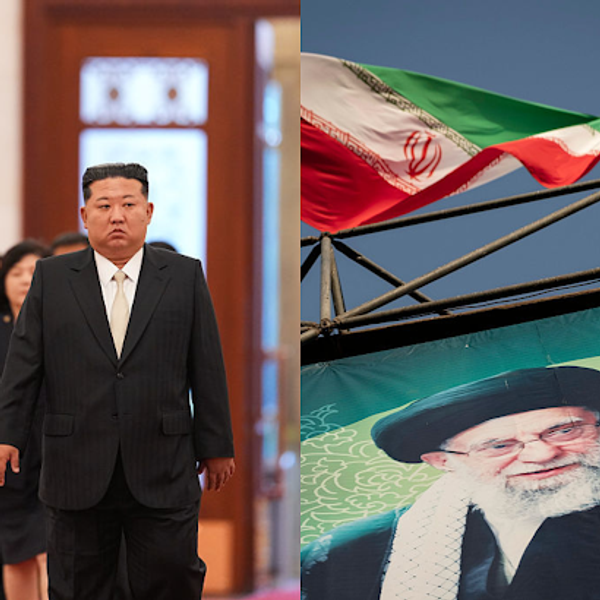We know from twenty-five years of negotiations that patience and persistence are required if we hope to resolve nuclear and other issues with North Korea. We also know that North Korea wants a normal relationship with the U.S., ideally they’d like to retain nuclear weapons and have access to international financial institutions as sources of investment. This has been and is North Korea’s goal.
To date, we haven’t succeeded in convincing the leadership in Pyongyang that normal relations with the U.S. will only be possible if North Korea dismantles its nuclear weapons and nuclear facilities and returns to the nuclear Non Proliferation Treaty (NPT) as a non-nuclear weapons state. Current ongoing negotiations with North Korea are focused on this objective, but if recent history is any indication, the U.S. will either lose patience and walk away from negotiations or it will succumb and openly or tacitly accept North Korea as a nuclear weapons state. Both outcomes would be unfortunate.
The 1994 Agreed Framework with North Korea ended in 2002 when North Korea was correctly accused of having a clandestine uranium enrichment program for nuclear weapons, in violation of the agreement. North Korea didn’t disagree and defiantly quit the NPT, while the U.S. ceased construction of two light water reactors, and stopped shipments of heavy fuel oil.
The September 2005 denuclearization Joint Statement of the Six Party Talks ended in early 2009, when North Korea wouldn’t sign a verification protocol permitting nuclear monitors to leave the Yongbyon Plutonium facility to inspect non-declared suspected nuclear sites. And the 2012 Leap Day Agreement ended in April 2012, when North Korea launched a rocket to put a satellite in orbit, in violation of the moratorium agreement on nuclear tests and missile launches (in return for considerable food aid assistance to the North and a resumption of negotiations). Each of these three agreements took considerable time to negotiate, but collapsed after North Korea either violated the letter or the spirit of the agreement, with little or no subsequent effort on the part of both countries to maintain contact and a dialogue. And in the absence of any dialogue, North Korea pursued its nuclear and missile programs, despite international opprobrium. Current estimates, since the 2009 collapse of the September 2005 Joint Statement, are that North Korea has a formidable arsenal of nuclear weapons and missiles capable of reaching the whole of the U.S.
The takeaway from the twenty-five years of failed negotiations is that North Korea wants nuclear weapons and regardless of any denuclearization agreement, will work hard to retain all or some of its nuclear weapons and nuclear facilities. North Korea also wants a normal relationship with the U.S., primarily for international legitimacy and access to international financial institutions.
The June 12, 2018 Singapore Summit between President Donald Trump and Chairman Kim Jung-Un was a present to North Korea, based in part, on a commitment that Kim made to South Korean President Moon Jae-in during their April 27 summit, that North Korea was prepared to completely denuclearize. Kim repeated this commitment of complete denuclearization to President Trump during their meeting in Singapore. He also committed to the repatriation of POW/MIA remains. In return, the U.S. committed to establishing a new relationship with North Korea and a peace regime on the Korean Peninsula.
One year ago, we could have stumbled into nuclear conflict on the Korean Peninsula. For the past nine months, North Korea has halted all nuclear tests and missile launches and according to Secretary of State Mike Pompeo, we are pursuing “patient diplomacy” with North Korea, knowing clearly that Kim Jung-Un knows that his commitment to “complete denuclearization” means complete, verifiable and irreversible dismantlement of North Korea’s nuclear weapons and nuclear facilities. Kim heard this repeatedly from Secretary Pompeo and President Donald Trump. Recent media and think tank criticism that nuclear dismantlement is moving too slowly is understandable, given the frustration with previous negotiations and agreements, and the credibility given to Kim with an unprecedented meeting with a sitting U.S. president. Thus, it’s fair to expect expedited movement on the part of North Korea. Unfortunately, for those of us who have negotiated with North Korea, that’s unlikely to happen. North Korea is good at pocketing deliverables and reciprocating slowly, regardless of commitments.
What’s also important to note is that North Korea knows that complete denuclearization (dismantlement) is necessary before normal diplomatic relations can be established. And for a normal diplomatic relationship, North Korea also knows they would have to make significant and timely progress on human rights issues and cease illicit activities, to include the counterfeiting of U.S. currency, pharmaceuticals and tobacco, to name a few. These issues are part of our Nation’s core values, and North Korea should understand that progress on these issues is necessary for full diplomatic relations to be possible. That doesn’t mean we can’t have liaison offices in our respective capitals, as these and other issues are pursued.
We are at an important inflection point with North Korea. Ideally, we will push and ensure that North Korea moves forward with complete and verifiable dismantlement of its nuclear weapons and nuclear facilities in return for security assurances and progress on establishing normal diplomatic relations. Given the progress made over the past six months, and despite the frustration of some backsliding from North Korea, it’s in our interest to stay the course and intensify negotiations and continue to push for greater movement on denuclearization, while being open to the establishment of liaison offices to enhance dialogue. It’s especially important that North Korea understands that they will never be accepted as a nuclear weapons state.
Joseph DeTrani was the former Special Envoy for Negotiations with North Korea. The views are the author’s and not any government agency or department.












